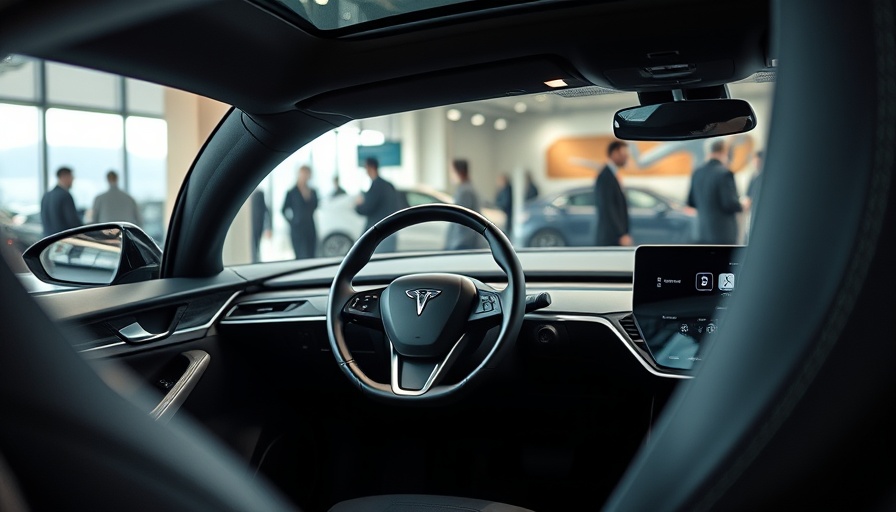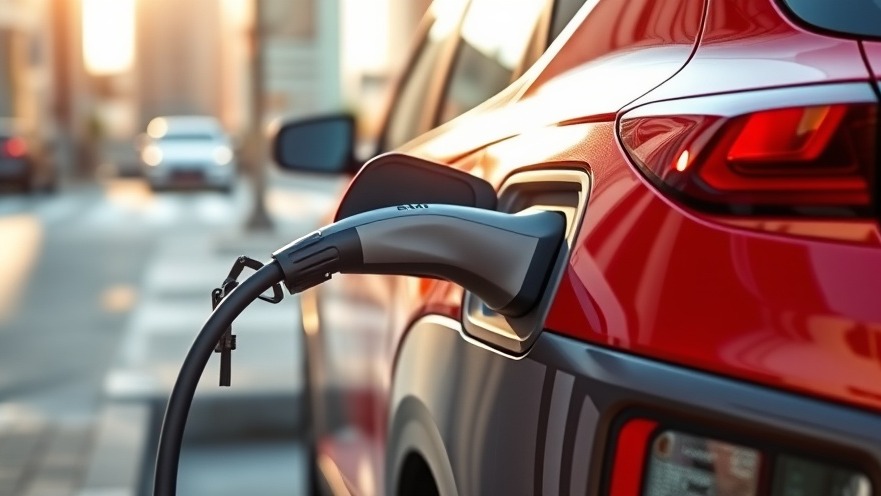
Understanding EV Brand Reputation: GM vs. Tesla
In the evolving world of electric vehicles (EVs), brand reputation plays a vital role in consumer trust and sales. General Motors (GM) and Tesla, two giants in the automotive industry, offer contrasting paths on their journeys toward becoming leaders in the EV market. While Tesla is renowned for its cutting-edge technology, GM has slowly emerged from the shadows of its past with a new identity as a trusted brand.
GM’s Past Shadows and Present Success
General Motors, once labeled as the 'killer of the electric car' for its abrupt discontinuation of the EV1 model, faced significant backlash in the ’90s. However, this historical setback did not define GM's future. The company methodically rebuilt its reputation by learning from the past and fostering trust among consumers.
With the launch of the Chevrolet Volt in 2010, GM strategically appealed to consumers wary of fully electric cars. Offering a hybrid option allowed drivers to transition into the world of EVs with the comfort of a gas tank at their disposal. This unique approach paid off, as GM has successfully climbed to become the second-largest seller of EVs in the U.S., reporting over 62,000 EV sales in just the first part of the year.
Tesla: A Bold Innovator with a Controversial Leaders
Tesla, on the other hand, has positioned itself as the premium leader in EV technology but not without its own set of controversies, primarily tied to its CEO, Elon Musk. From erratic social media behavior to fluctuating public statements, Tesla's brand reputation is a rollercoaster of highs and lows. Despite these challenges, Tesla's commitment to innovation and sustainability has secured a strong loyalty among its customer base. They appreciate the brand's audacity in pushing boundaries in clean energy technology.
Consumer Trust: The Heart of Sustainability Goals
As individuals and businesses aim for sustainability goals, like reduced fossil fuel consumption or implementation of solar-powered enterprises, their choices in purchasing electric vehicles carry weight. The trust that GM has worked hard to build can serve as a lesson for all businesses seeking to enter the eco-friendly market. Developing a reputation as a reliable company that genuinely cares about environmental changes can foster customer loyalty and enhance the overall mission of sustainability.
The Future of EV Brand Dynamics
Looking ahead, the competition between GM and Tesla is likely to heat up further. As they innovate and push the envelope on electric car technology, other emerging brands are also taking note. There’s a promising opportunity for smaller businesses, especially those focused on eco-friendly hospitality, to learn from both giants' approaches to brand reputation to carve their own unique paths in a crowded market.
Insights from EV brand competition can inspire smaller enterprise innovations, such as off-grid solar solutions for lodging properties or urban farming practices that align with sustainability principles. These adapted strategies blend ecological consciousness with practical applications.
Decisions for Different Eco-conscious Ventures
Profound learnings can be drawn from GM's evolution and Tesla's marketing. As entrepreneurs in the eco-hospitality sector consider their pathways, understanding consumer hesitations, building trust, and communicating sustainability goals effectively become critical. They can implement initiatives like using biodegradable paper wrappers or aligning their operations to corporate sustainability goals that resonate with their clientele.
Conclusion: Your Role in the Sustainability Movement
As the electric vehicle market continues to expand, being informed about the evolving reputations of brands, especially those leading the sustainable charge, is crucial. As a boutique hospitality professional, integrating eco-conscious choices into your business is not just about competition; it’s about fostering a greater connection to the planet. Are you ready to innovate?
 Add Row
Add Row  Add
Add 




Write A Comment